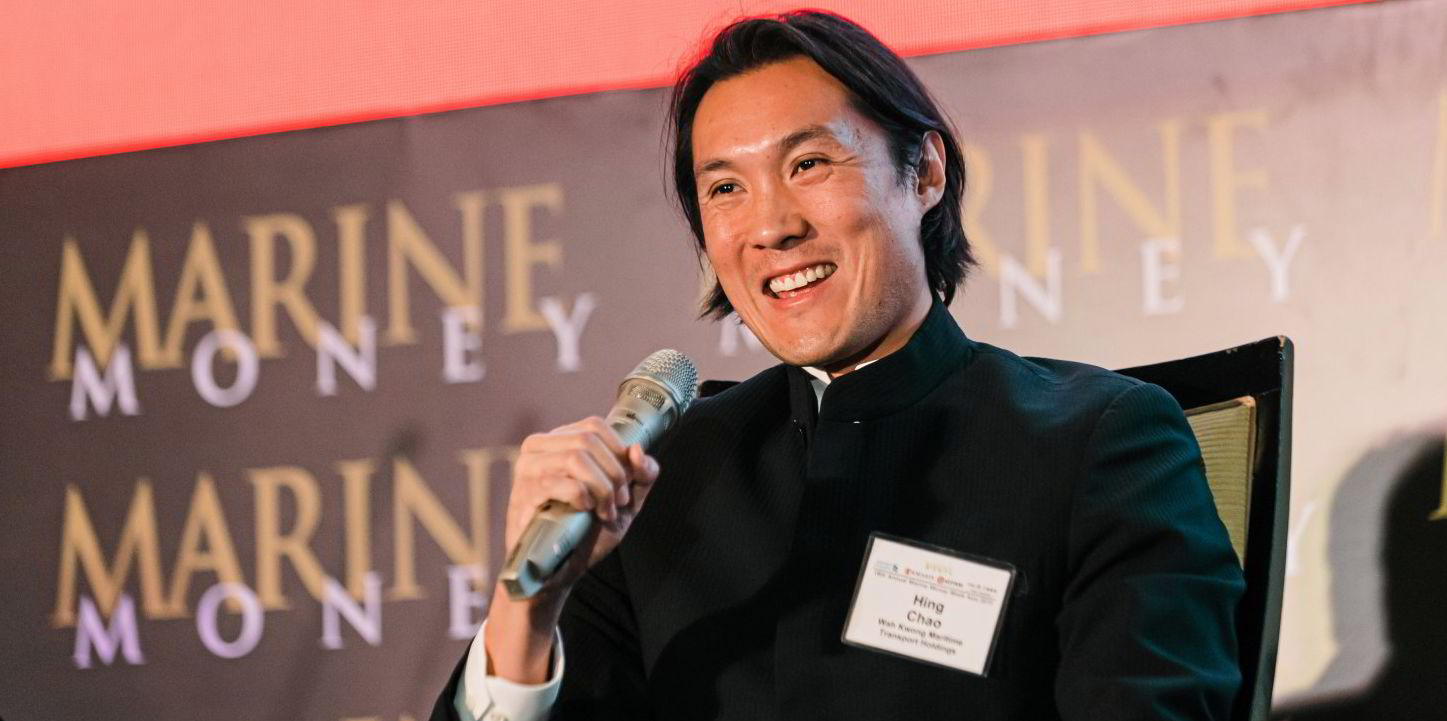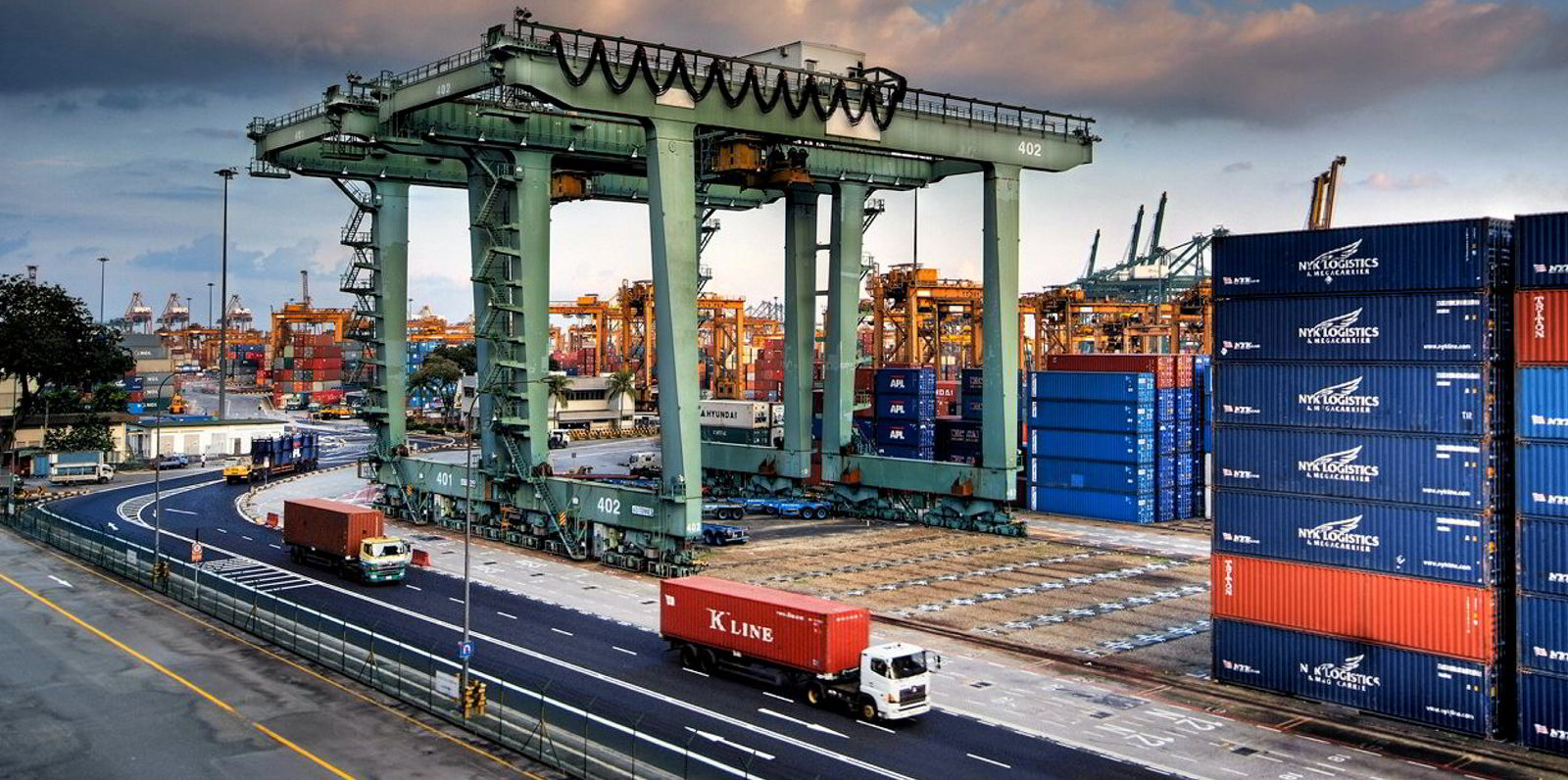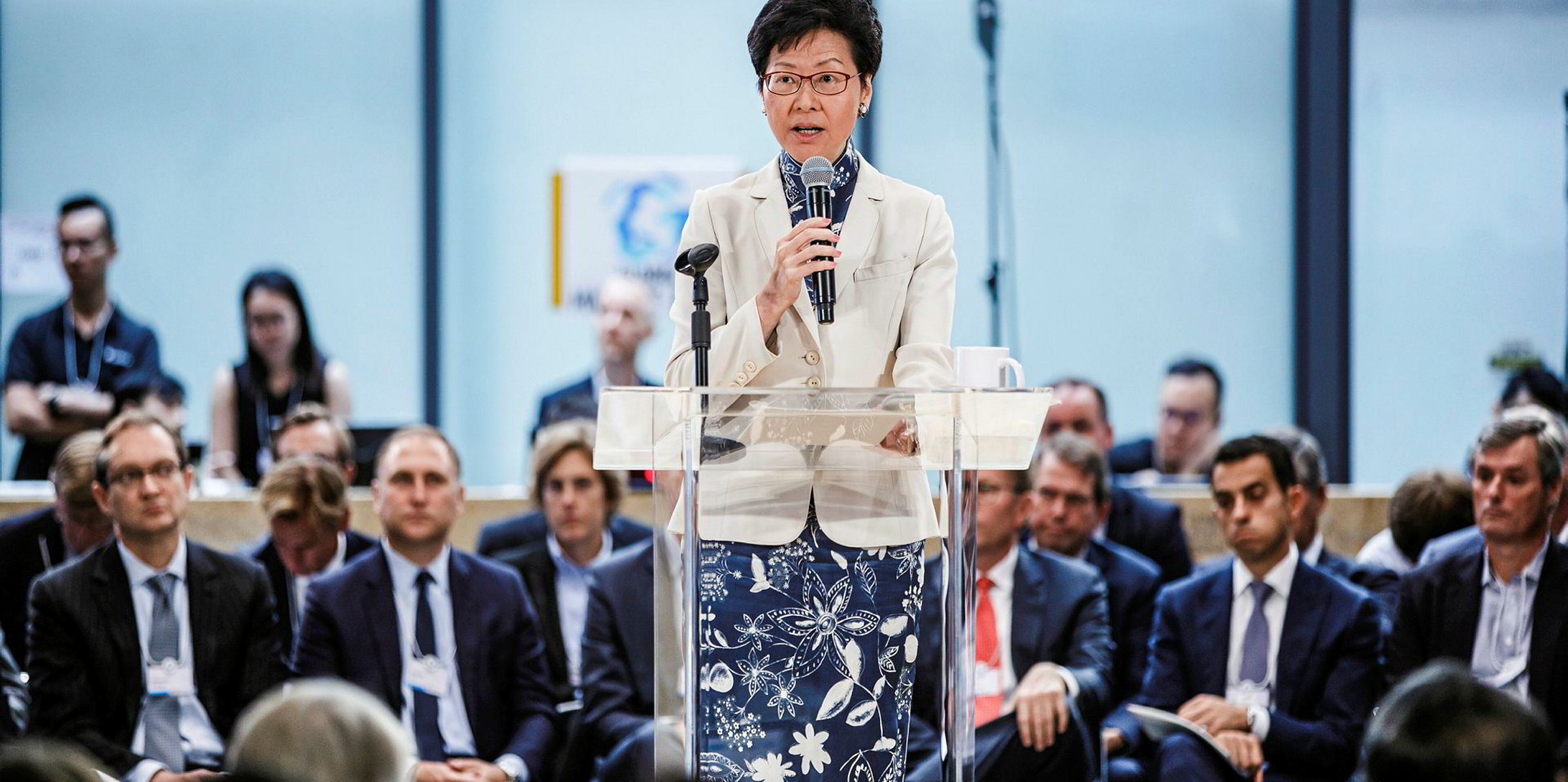For a long time, Hong Kong has seemed a permanent fact of world shipping and finance, almost geologically indestructible as a feature of China's relations with the world outside.
That is an illusion. Hong Kong's status as a world trading hub is not just a matter of having a natural deepwater port in a perfect location. It also depends on the rule of law, guaranteed by a regime that is politically stable, responsible and rational.
After China pulled down a bamboo curtain of patriotism and quarantine, closing down Hong Kong with it, and last year's passage of a National Security Law that criminalises meaningful forms of political expression, it has become clear that Beijing will do exactly as it pleases with its possession.
International businesses have no good reason to suppose that they can rely on a political and legal foundation that gives Hong Kong a sustainable future.

Beijing's defenders in the shipping community are not doing themselves, their industry or their home any favours by pretending there is nothing wrong. But they have little choice. China under Xi Jinping is closing its doors politically, socially and economically, and Hong Kong has no choice but to try to turn that into a selling point.
A Capital Link conference this month made Hong Kong's predicament visible by bringing together prominent representatives of its shipping establishment in an online forum dedicated to the optimistic proposition that the city is as competitive as ever.
Held in connection with the Greater Bay Maritime Forum of the Hong Kong Shipowners Association, it offered cheerleading for policy slogans such as President Xi's "dual circulation policy" meant to link domestic and export-oriented industrial development, and something about a "new maritime ecosystem", not to mention the creation of a "Greater Bay Area" to integrate Hong Kong with neighbour cities of the Pearl River Delta.
The shipowner represented was Hing Chao, executive chairman of Wah Kwong Maritime Transport, whose pitch for Hong Kong was all about unique access to China.
"We are extremely well placed — as a springboard into China, but also as a platform for China to connect to the rest of the world," he said to those who believe the sun has set on Hong Kong and risen again on Singapore.
Beijing has imposed unrelentingly stringent Covid travel measures on Hong Kong, but Chao is not among those who see that as strangling business there.
"Particularly during this period, when travel is so difficult all over the world, unless you already have a relationship established — with a leasing company in China, for example — it's very difficult to do a new deal," he told Capital Link's global audience. "In Hong Kong, we have a critical edge compared to the rest of the world because of this accessibility."
But the fact is that location at the threshold of China is not enough. Politics plays a role, and now that Beijing has erased Hong Kong's autonomy, it is politics that can kill Hong Kong.
Bjorn Hojgaard, chairman of the Hong Kong Shipowners Association and chief executive of Anglo-Eastern Univan, brought in the political framework tactfully.
"Traditionally Hong Kong's strength for international business has been a low and stable tax regime, a Hong Kong dollar that is freely convertible and pegged to the US dollar, and the rule of law — knowing that you can trust the judiciary system here in Hong Kong if you have a dispute," he told the panel.
Hill Dickinson partner Edward Liu felt the rule of law remains unthreatened. "Hong Kong's solid rule of law and the independent judiciary are fully supported by and endorsed by the [Beijing] central government," he said.
Really?
Beijing may decide in its own interest to keep its fingers off the Hong Kong High Court on the commercial side. But it has not done so on the criminal side, after the passage of the National Security Law.
And a large number of residents — most citing the deterioration of political rights and related issues — say they would leave if they had the chance.
A poll in September by the Chinese University of Hong Kong put the number at 42%. These are the people on whose skills Hong Kong's shipping and finance industries depend.





